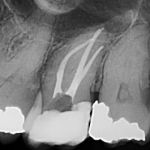How to Prevent Oral Infections After Dental Surgery
- 1. The Importance of Preventing Oral Infections
- 2. What Causes Oral Infections After Dental Surgery
- 3. Essential Steps to Prevent Infections
- 4. When to Seek Medical Help
- 5. Oral Hygiene Tips for a Faster Recovery
- 6. How Dentistry Toothtruth Can Help You Post-Surgery
1. The Importance of Preventing Oral Infections
After undergoing dental surgery, whether it’s a tooth extraction, root canal, or implant placement, preventing oral infections is essential for a smooth recovery. An untreated oral infection can lead to complications such as pain, swelling, fever, and even the need for further treatment. Infections after dental surgery can also slow down the healing process, making it harder to return to your regular routine.
Oral infections can be particularly concerning because they may spread to other parts of the body, such as the jawbone or bloodstream, which can result in more serious health problems. This is why it’s important to follow proper post-surgical care, practice good oral hygiene, and take preventive measures to reduce your risk of infection.
2. What Causes Oral Infections After Dental Surgery
Understanding the causes of oral infections after dental surgery can help you take proactive steps to prevent them. Infections typically arise when bacteria enter the surgical site, causing inflammation and infection. There are several factors that increase the risk of infection following dental surgery:
- Poor Oral Hygiene: Failing to maintain proper oral hygiene can lead to the accumulation of bacteria around the surgical site, increasing the risk of infection.
- Smoking: Smoking can interfere with the healing process by reducing blood flow to the gums, making it easier for infections to develop.
- Weak Immune System: If your immune system is compromised due to illness or medication, your body may struggle to fight off infection.
- Not Following Post-Surgical Instructions: Ignoring your dentist’s post-surgery care instructions can lead to complications, including infection. For instance, not avoiding certain foods or drinks may irritate the surgical site and hinder healing.
By addressing these factors and following the appropriate steps, you can significantly reduce your risk of developing an infection after dental surgery.
3. Essential Steps to Prevent Infections
There are several proactive measures you can take to prevent oral infections after dental surgery. These steps will help promote proper healing and reduce the risk of complications:
- Maintain Good Oral Hygiene: It’s crucial to brush and floss your teeth gently after surgery. However, be careful around the surgical site to avoid disturbing the healing tissue. Your dentist may recommend a special mouthwash to help keep your mouth clean without irritating the wound.
- Take Prescribed Medications: If your dentist prescribes antibiotics or pain medication, be sure to take them as directed. Antibiotics are often prescribed to prevent infection, and completing the full course is vital to ensure the infection is fully prevented.
- Eat Soft Foods: After dental surgery, stick to soft foods that won’t irritate the surgical site. Avoid hot, spicy, or crunchy foods, which can cause discomfort and potentially introduce bacteria into the wound.
- Rest and Hydrate: Give your body the chance to heal by resting and drinking plenty of water. Staying hydrated helps maintain a healthy immune system and can promote faster recovery.
By following these steps, you can significantly reduce your risk of developing an infection and speed up your recovery process.
4. When to Seek Medical Help
While most people recover from dental surgery without issues, it's important to monitor your recovery and know when to seek help. If you notice any of the following symptoms, it’s important to contact your dentist or doctor immediately:
- Increased Swelling or Pain: Some discomfort and swelling are normal after surgery, but if these symptoms become worse over time, it could be a sign of infection.
- Fever: A fever is a common sign of infection. If you develop a fever following dental surgery, it’s important to seek medical attention.
- Unusual Drainage: If you notice pus or any unusual drainage from the surgical site, this could indicate an infection that needs treatment.
By recognizing the signs of infection early and seeking medical help, you can prevent further complications and ensure a smooth recovery.
5. Oral Hygiene Tips for a Faster Recovery
Good oral hygiene is essential for a speedy recovery after dental surgery. Here are some tips to keep your mouth clean and avoid infections during the healing process:
- Use a Soft-Bristled Toothbrush: After surgery, switch to a soft-bristled toothbrush to avoid irritating the surgical site. Brush gently around the area, ensuring you’re cleaning all other teeth properly.
- Rinse with Saltwater: A saltwater rinse can help reduce swelling, promote healing, and prevent infections. Mix a teaspoon of salt with warm water and gently swish it around your mouth several times a day.
- Avoid Smoking and Alcohol: Smoking and alcohol can both hinder the healing process and increase the risk of infection. It’s best to avoid these substances while recovering.
Incorporating these simple oral hygiene habits into your daily routine can significantly improve your recovery time and reduce the risk of complications.
6. How Dentistry Toothtruth Can Help You Post-Surgery
For additional support in preventing oral infections and ensuring a smooth recovery after dental surgery, visit Dentistry Toothtruth. Our team of dental professionals can provide expert advice on oral care, recommend high-quality products to support your recovery, and guide you through the post-surgical process.
We offer a wide range of resources to help you maintain good oral health and prevent infections, ensuring you have the best chance for a speedy and complication-free recovery. Visit our website today to learn more and explore our comprehensive dental care options.
In conclusion, preventing oral infections after dental surgery is essential for a smooth and quick recovery. By following proper care instructions, maintaining good oral hygiene, and knowing when to seek medical help, you can minimize the risk of infection and heal faster. For expert advice and post-surgery support, visit Dentistry Toothtruth and take the next step toward optimal oral health.







 Aspen Dental - Plymouth, MA4.0 (306 review)
Aspen Dental - Plymouth, MA4.0 (306 review) North Penn Endodontics Group4.0 (87 review)
North Penn Endodontics Group4.0 (87 review) Dental Bright advanced family dentistry & orthodontics4.0 (69 review)
Dental Bright advanced family dentistry & orthodontics4.0 (69 review) aspen dental, Kevin D. Oh, LLC2.0 (8 review)
aspen dental, Kevin D. Oh, LLC2.0 (8 review) Grady Dental Care5.0 (281 review)
Grady Dental Care5.0 (281 review) Aspen Dental - Glendale, AZ4.0 (602 review)
Aspen Dental - Glendale, AZ4.0 (602 review) The Importance of Oral Health Education During Pregnancy for a Healthy Pregnancy
The Importance of Oral Health Education During Pregnancy for a Healthy Pregnancy Best Tips for Brushing Your Teeth Properly for Healthy Gums: Essential Techniques for Oral Health
Best Tips for Brushing Your Teeth Properly for Healthy Gums: Essential Techniques for Oral Health Why Skipping Dental Checkups Can Lead to Bigger Oral Health Problems
Why Skipping Dental Checkups Can Lead to Bigger Oral Health Problems Advantages of Porcelain Dental Restorations
Advantages of Porcelain Dental Restorations How Can Diabetes Cause Tooth and Gum Problems? Preventing and Managing Oral Health Issues
How Can Diabetes Cause Tooth and Gum Problems? Preventing and Managing Oral Health Issues Healthy Habits for Promoting Good Oral Health and Hygiene: Tips for a Healthy Smile
Healthy Habits for Promoting Good Oral Health and Hygiene: Tips for a Healthy Smile